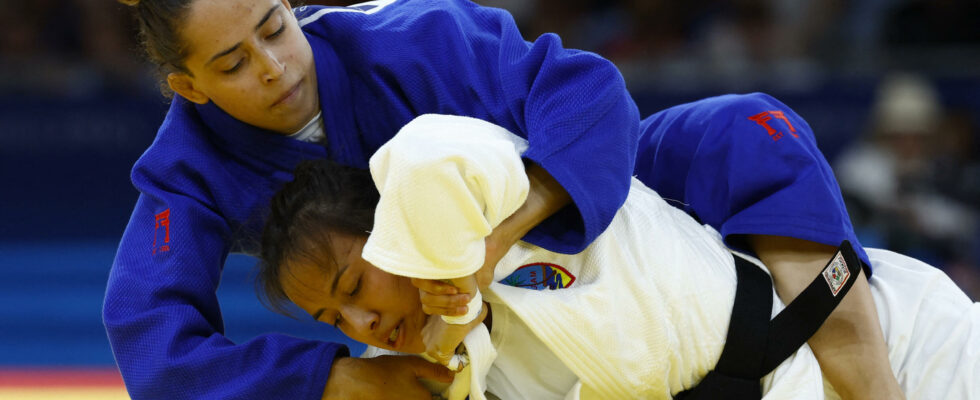As in almost every Olympic Games, African athletes are struggling to shine on the tatami in Paris. Those who were eliminated this Monday, July 29, deplore the lack of consideration and the glaring absence of means for judo in Africa.
4 mins
There was no miracle, much less a resounding feat, this Monday, July 29 on the tatami of the Arena Champs-de-Mars which is hosting the judo event of the Paris Games. Of the seven African fighters entered, only two were able to get through a round: Tanzanian Andrew Mgulu and Guinean Mariana Esteves, before coming up against reality. Africa does not shine in judo at the Olympics, and that is nothing new. In Olympic history, only four medals, two silver and two bronze, have been won by Algeria and Egypt. And there is little hope that the 36 judokas representing Africa will do better this year.
Read also2024 Olympics: all the results of the events
Japan, the ideal destination…
Beaten in the second round by the Olympic vice-champion, the Guinean of Portuguese origin, Mariana Esteves, did not aim any further. My Olympic dream is over, but it was still a great experience “, she admits. Like most of her colleagues on the continent, she is disappointed not to have benefited from more preparation to hope for better. The promises made by the Guinean Judo Federation, when choosing her mother’s country of birth, did not last long. Today, Esteves pays a lot out of his own pocket to stay at the level. “ The 2023 and 2024 African championships, we are the ones who paid (Editor’s note: with the other Guinean judoka Marie Branser), and fortunately the IJF (International Judo Federation) sometimes helps us with transport and accommodation, otherwise, it would be complicated ” says Esteves.
For Tanzanian Andrew Mgulu, beaten by Frenchman Joan-Benjamin Gaba, the fact of not being able to compete often in international judo does not help his progress at all. In Tanzania we don’t have good opponents to raise our level. Here I learned a lot in a short time with international judokasbelieves the one who trains in his country. I would like to have the opportunity to train in Japan, because I have good judo, but I have never had this opportunity. »
Transmit to develop judo
Aden-Alexandre Houssein, born in Djibouti, has the opportunity to train in France, his mother’s country. But the ” Competitions are expensive and I don’t have a big federation behind me. So, we do a few competitions with what we have. And we choose them well because we have a budget to respect ” However, the resident of the Red Star Club Montreuil club was able to complete part of his ” preparation in Japan “.
The lack of resources for good preparation and progress is a big problem, but not the only one according to Rodrigue Chenet, coach of Zouleikha Dabonne, defeated in the first round as in 2016 and 2021. What is missing in judo in Africa is the preparations, the contacts of course, but there is an aspect that we sometimes forget, it is the mental aspect. And having self-confidence in an individual sport is also the key to succeeding and daring to do it. And that is what was missing in the first part of Zouleikha’s fight. Self-confidence, it happened a little too late in the fight. »
Read alsoJO 2024: discover the program of the day
Zouleikha Dabonne, 31, who is not planning for the 2028 Los Angeles Games for the moment, is thinking of leaving the kimono “to the young people”. Passing on knowledge will also be a way of helping African judo to develop. My goal at the end of my career is to help develop judo in Gambia. “, promises Faye Njie, beaten in the first round, born in Helsinki, to a Gambian father and Finnish mother.
Mariana Esteves also has a project to develop women’s judo in Gambia: ” I am currently finishing a course in sports management. My goal is to contribute to the development of judo in Guinea. »
In the meantime, the road to a new African medal in judo is still long.
